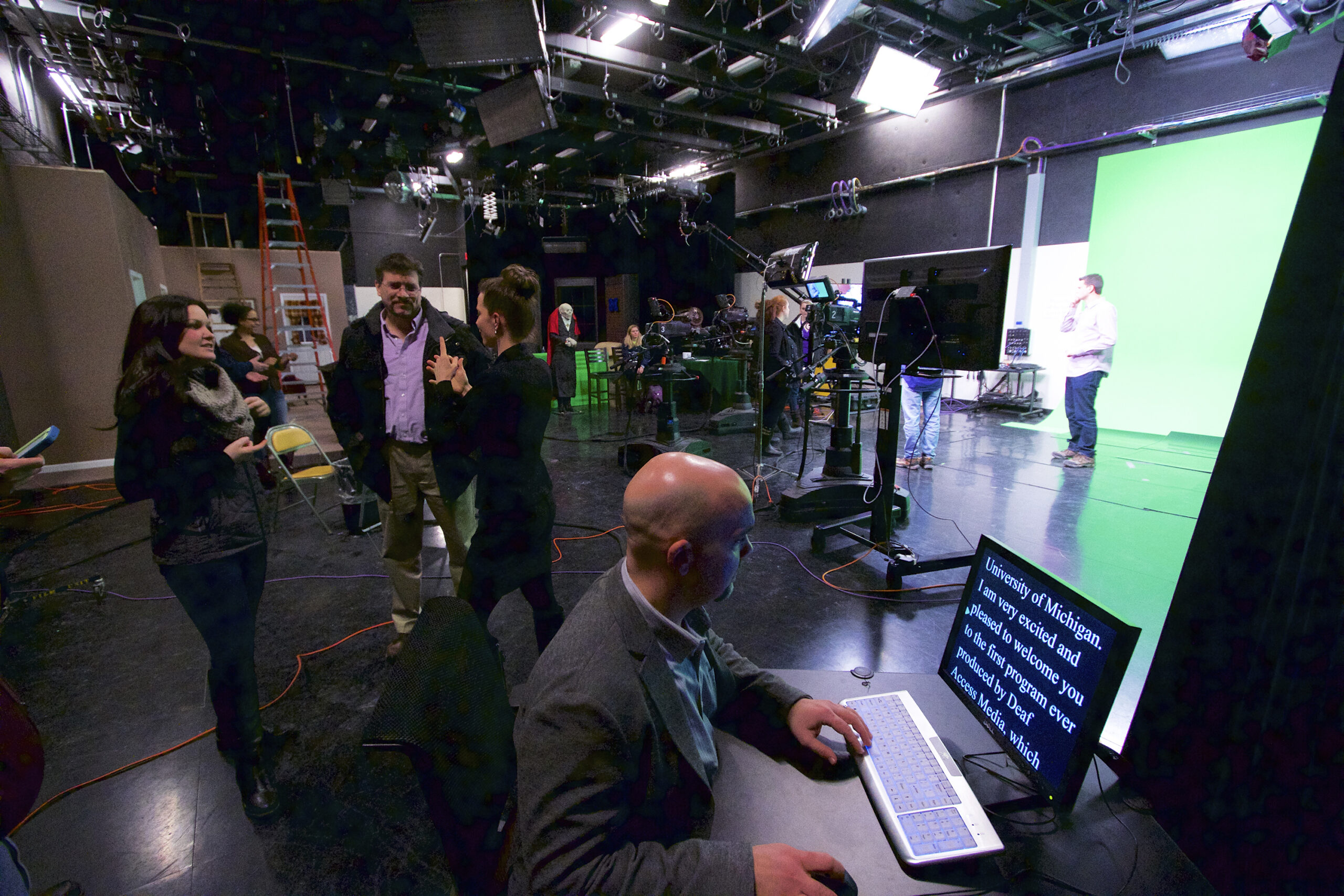For the roughly one million people in the United States who are deaf or hard of hearing, and use American Sign Language, navigating a hearing world can be frustrating. Few hearing Americans are fluent in American Sign Language (ASL), so written English becomes the default mode of communication for everything from routine daily interactions and signs to closed captions for TV and movies.
What many people don’t realize, though, is that any deaf person who can both sign and read closed captions is bilingual; ASL is not the same language as standard English. And with the average deaf person only reading at a fourth grade level, trying to keep up with rapidly moving and often incorrect closed captions on a hearing program is nearly impossible.
Enter Larry Lage and Deaf Access Media.
“Deafness and deaf culture are really close to my heart,” said Larry, the son of deaf parents, uncle to two deaf nephews and brother to an ASL interpreter.
But it wasn’t until he was facing the application committee for the Knight-Wallace fellowship that he was asked if he’d ever thought to combine his news background (Larry is a sportswriter for the Associated Press) with his passions.
“Give me the fellowship, and I’ll come up with something,” he told the program’s director, Charles Eisendrath.
So the nine-person selection committeee did.
On temporary leave from the AP, Larry is back in his native Ann Arbor and is using his time at U-M to form Deaf Access Media, which aims to translate the news and even popular radio programs into ASL with voiceovers and/or closed captions, so that deaf and hearing people can enjoy the same programs side-by-side without being at a disadvantage. ASL Media is based on a nonprofit model in order to create more partnership opportunities and currently is structured around a website and a Youtube channel.
With the help of connections he made during a Screen Arts and Cultures class and with students involved with WOLV-TV, Larry has produced a 12-minute pilot video of a newscast. Five of his fellow students from Prof. Len Middleton’s entrepreneurial management class at the Ross School of Business have teamed up to help Larry craft a business plan. The pilot newscast is hosted by Ruth Anna Spooner, a PhD candidate focused on deaf literacy, and also features a health spot by Dr. Mike McKee, also deaf, on preventing the spread of measles. After showing the video to a focus group and gaining useful feedback, Larry and his team plan on shooting a second pilot on April 12.
“When you have an idea, you should be thinking about it when you go to bed at night, and still thinking about it when you put your feet on the ground in the morning,” Larry recalls Prof. Middleton saying.
Deaf Access Media is also looking forward to the 2015 TEDxUofM awards; it has been selected as one of this year’s three finalists. A student-run organization, TEDxUofM is affiliated with the global series of TED talks and will award $1,000 to the winning project. The winner will be announced on Friday, March 20.
Larry credits Deaf Access Media’s progress to all the assistance he’s received from everyone from his fellow students and the professors he’s taken classes with to the attorneys at the U-M law school who have given him legal advice and the Ross business researchers who have helped him back up assumptions with data. “Everyone I meet with says, ‘How can I help,’ and, ‘You should talk to this person and this person,’” Larry said.
“I couldn’t have done this if my employers didn’t support me,” Larry added. “This is arguably one of the coolest opportunities at one of the world’s best institutions.”
Click here to view highlights from Deaf Access Media’s pilot video.

